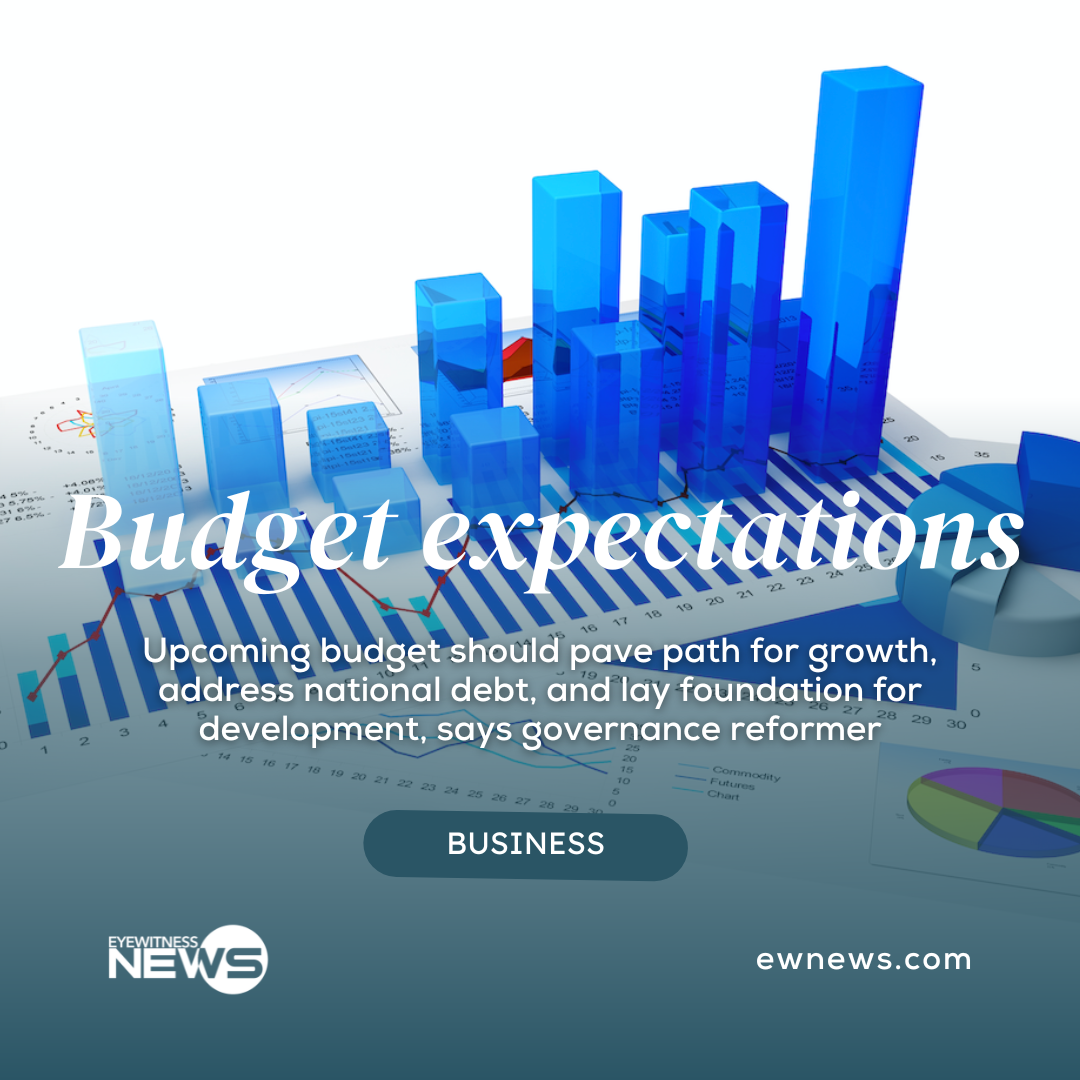NASSAU, BAHAMAS — The upcoming budget should “pave the path and broaden the space” for future growth and address the state of the national debt while laying the foundation for broad-based development, a governance reformer stated yesterday.
Hubert Edwards, head of the Organization for Responsible Governance (ORG) economic development committee, told Eyewitness News: “One of the big questions which loom is whether the country will achieve the level of the fiscal deficit target set in the 2023/24 budget. It appears that the administration is striving to do so, but as I have consistently stated, it’s not a target to be overly attached to. Not meeting the target will not be fatal as long as the trajectory of the deficit remains on the decline.”
Edwards noted that one of the major factors that ought to drive the budget deliberations is the fact that there is an infrastructure deficit in the country of $2 billion, with BPL contributing significantly to this.
“This is a fundamental issue. The dollar deficit, coupled with the age of existing infrastructure, is antithetical to future growth. Based on the assessment, $600 million in capital spending each year is needed. Currently, the country budgets only spend half of that, with a deficit, and a current debt stock of $12 billion,” Edwards noted.
Edwards opined that the key to this budget cycle will be how the country plans for these issues and how it can be achieved without either significant growth and/or borrowings.
“An honest assessment must acknowledge that there has been some level of opacity and lag about fiscal reporting and consequently there remains a level of uncertainty as to where the number will land. One expectation of the budget communique is a clarification of where we stand and a full exposition of the projections and expected outcomes,” said Edwards.
Edwards suggested that there must be fundamental reforms in SOEs and the civil service. “There must be a clear effort to rationalize the almost $500 million in expenditure to SOEs and $700 million to the public sector. Reforms should be evident securing improvements, efficiencies, greater corporate governance, and creating a more facilitative environment for economic growth,” he stated.
“There should be updates on tax reforms and increased taxes. To date, there is uncertainty around the march to corporate taxes. While it is not clear whether there is a definite need for such at this point the budget should clarify the same by ensuring that the current streams of revenue are confirmed to be sustainable across the board with a clear linkage to the funding needs and addressing the infrastructure deficit. The budget should confirm the extent to which the drive towards 25 percent revenue to GDP has been or will be achieved. The discussion on the need for taxation should be clear and focused to engender certainty, especially across the private sector,” said Edwards.
He continued: “Fundamental reforms and solutions in the area of energy should be anticipated. Without clear solutions in this area relating to BPL, the country will be challenged in the future and any projections to the exclusion of clearly identified private or public funding would become questionable given the ubiquity of energy as a productive input. National debt remains an uncomfortable Achilles heel to the way forward, adjustments to the debt management strategy may be necessary. What is more critical however is a recognition of the fact that despite the improvements in the economy together with excellent reconsolidation, the creditworthiness of the country has not improved as anticipated. Consequently, this requires, in my opinion, a clear and comprehensive discourse. One expectation therefore is how the country will traverse the path of improving its credit ratings.”
Edwards noted there there must be a clear recognition that the country has been again locked back into its historical growth patterns. “Given the realization of the excellent level of reconsolidation of the economy without any major shift in creditworthiness the budget must outline clear strategies for growth recognizing that there must be disruptive changes made now which are needed to facilitate future growth. A budget presentation which is short on growth strategies will be suboptimal.”
Edwards concluded: “Due mainly to the debt stock and the lingering effects of a creditworthiness under pressure this budget is important for the country moving forward. The uncertainty around the sustainability of the revenue calls for focused discussion. This budget should pave the path and broaden the space for future growth and addressing the state of the national debt while laying the foundation for broad-based development.”


















